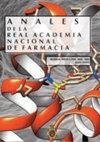A holistic insight into neurodegeneration
Q Pharmacology, Toxicology and Pharmaceutics
Anales De La Real Academia Nacional De Farmacia
Pub Date : 2023-09-30
DOI:10.53519/analesranf.2023.89.03.07
引用次数: 0
Abstract
Neurodegenerative diseases are defined by a progressive and irreversible impairment of neurons. Despite being a very heterogeneous group of pathologies, they share some common features, such as their multifactorial origin and their close correlation with ageing. As worldwide life expectancy increases, these diseases have become a tough challenge for healthcare systems as their prevalence is raising in the same way. The most important neurodegenerative disorders, because of their prevalence or their health impact, are Alzheimer´s, Parkinson´s and Huntington´s diseases; and amyotrophic lateral sclerosis. The knowledge about their origin is still very poor, so their clinical management is far from being adequate. There are not reliable methods for early diagnosis, so these diseases are usually detected when tissue damage is irreparable. Furthermore, current available therapies are intended only for symptomatic relief, since the misunderstanding about the real causes of these diseases and their delayed diagnosis hinder the development of new treatments being able to stop or even reverse the structural and functional decline. In the last few years, some pathological events have been identified as potential key factors to understand the origin of neurodegeneration. Among them, we shall mention oxidative stress, impaired proteostasis and neuroinflammation: a deeper knowledge about their interconnections and their ability to feedback each other could provide valuable information to progress towards an effective clinical management of neurodegenerative disorders.全面了解神经退行性变
神经退行性疾病的定义是神经元进行性和不可逆的损伤。尽管神经退行性疾病的病理类型多种多样,但它们有一些共同的特征,如多因素致病和与衰老密切相关。随着全球人口预期寿命的延长,这些疾病的发病率也在不断上升,因此已成为医疗保健系统面临的严峻挑战。由于其发病率或对健康的影响,最重要的神经退行性疾病是阿尔茨海默病、帕金森病和亨廷顿氏病,以及肌萎缩侧索硬化症。人们对这些疾病的起源仍然知之甚少,因此对它们的临床治疗还远远不够。由于没有可靠的早期诊断方法,这些疾病通常在组织损伤无法挽回时才被发现。此外,由于对这些疾病真正病因的误解以及诊断的延迟,阻碍了能够阻止甚至逆转结构和功能衰退的新疗法的开发,因此目前可用的疗法只能缓解症状。在过去几年中,一些病理事件已被确定为了解神经退行性变起源的潜在关键因素。在这些因素中,我们将提到氧化应激、蛋白稳态受损和神经炎症:深入了解它们之间的相互联系及其相互反馈的能力,可以为神经退行性疾病的有效临床治疗提供有价值的信息。
本文章由计算机程序翻译,如有差异,请以英文原文为准。
求助全文
约1分钟内获得全文
求助全文
来源期刊

Anales De La Real Academia Nacional De Farmacia
Pharmacology-
CiteScore
0.13
自引率
0.00%
发文量
7
期刊介绍:
The Anales de la Real Academia Nacional de Farmacia� embraces all aspects of pharmaceutical sciences and is a quarterly journal that publishes basic and applied research on pharmaceutical sciences and related areas. It is a medium for reporting selected original and significant contributions to new pharmaceutical knowledge.
 求助内容:
求助内容: 应助结果提醒方式:
应助结果提醒方式:


